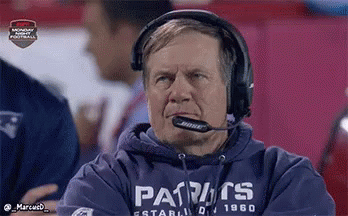After the Boston Red Sox signed J.D. Martinez last offseason, the team’s offense went from last in the American League in home runs, second-to-last in slugging percentage and 11th out of 15 teams in on-base plus slugging (OPS) to first in batting average, slugging, OPS, runs and sixth in home runs. The addition of Martinez, the only major addition to the team’s lineup who also produced 43 home runs and 130 RBI along with a stat line of .330/.402/.629, led many to believe that Martinez had revitalized the Red Sox lineup and brought them from worst to first in most major categories. Although Mookie Betts, who eventually won the American League Most Valuable Player award, led the league in runs, batting average, slugging and finished second in on-base percentage, one can perfectly validate that the addition of Martinez put the Red Sox over the hump. The addition of Martinez was like the addition of Curt Schilling back in 2004. The Red Sox had Pedro Martinez, an ace, but a significant upgrade to their No. 2 starter ultimately put the team over the threshold and into the title of World Series Champions.
This left fans and I in outcry when
they found out Martinez, who many thought would win the MVP award, was not even
a finalist for the award.
JD Martinez not being a finalist for AL MVP is one of the dumbest things I’ve ever seen in my life— Steve Perrault (@Steve_Perrault) November 5, 2018
Ok so let me get this straight. JD Martinez was left off the ballot for the 3 finalists for AL MVP. Jose Ramirez made it over him— Willie J. (@wvizoso411) November 6, 2018
JD Martinez:
BA: .330
HR: 43
RBI's: 130
Jose Ramirez:
BA: .270
HR: 39
RBI's: 105
Does anyone else see the issue here? FIX THIS ISSUE
In the era of shifts, launch angles and “home run or
bust” mentality, Martinez bucks the trend. An all-around hitter, the Red Sox
hadn’t seen a player hit at least 40 home runs, 100 RBIs and .300 in a season
since Manny Ramirez did so back in 2004. Even after an historic performance in
an era of baseball founded on this “home run or bust” mentality, and after
finishing second in two out of three triple crown categories while finishing
first in the third, Martinez finished fourth in the AL MVP voting.
Martinez deserves applause for finishing
second in two triple crown categories and first in the third. But what if
Martinez had finished first in all three categories, making him the first
player to win the triple crown since Miguel Cabrera did so in 2012. Would that have
made a difference in the voting, ultimately propelling Martinez into first
place?
Out of 12 major league players that
have won the triple crown award, seven have won the MVP award for their
respective league. Sixty-three percent of triple crown winners have won the MVP
award for that season when factoring in the 1922 season when the national
league had no MVP honored but had Rogers Hornsby win the triple crown award. Every
player since 1956 that has won the triple crown also won the MVP award for
their respective league. The voting wasn’t even close in each of those cases either.
In 2012, Cabrera took home 22 out of
28 first place votes and finished 81 points higher than second-place finisher
Mike Trout. The separation gets more and more going down the list. In 1967,
Carl Yastrzemski took home all but one first place vote and out-paced
second-place finisher Harmon Killebrew by 114 points. In 1996, triple crown
winner Frank Robinson earned all 20 first-place votes with a 127-point gap
between first and second place. In 1956, triple crown winner Mickey Mantle earned
all 24 first-place votes and finished 150 points higher than second-place
finisher and teammate Yogi Berra. Yes, I worked backwards which means that the
gap is closing between triple crown winners and MVP winners, but winning the
triple crown, after leading all three categories at one point during the
season, would have helped Martinez. But would it have mattered?
In the last 10 years, within the
American League, the player that ranked highest in Wins Above Replacement (WAR)
has won the award six out of 10 times, or 60 percent of the time. This makes
sense because, if WAR measures the value of a player over another, then the
leader in the category should win the award. For people that believe in
statistics only, they preach this approach and it shows. Since 2013, the year
where many analysts and voters argued between Miguel Cabrera, the league’s best
all-around hitter and Mike Trout, the American League’s WAR leader winning the award
because of that argument, the American League WAR-leader has won the award
four-out-of-five times. The only one to win the MVP-award during that time and
not lead the league in WAR was Josh Donaldson, who had almost identical offensive
numbers to WAR-leader Mike Trout. Trout had a better WAR because of his defense.
He went the entire season without committing an error while Donaldson committed
18 errors in 2015.
Martinez might be baseball’s best
overall hitter. In an era of baseball centered around the idea that hitters must
hit a home run to get the ball by the defensive shift, Martinez played the role
of all-around hitter, like Manny Ramirez did in 2004, or like Mantle in the 50s
and 60s, or even (dare I say) Barry Bonds of the 90s. If Martinez won the triple
crown, would he have won the MVP award as well? If the WAR statistic is around,
no one will know.
/cdn.vox-cdn.com/uploads/chorus_image/image/61024211/usa_today_11024081.0.jpg)














